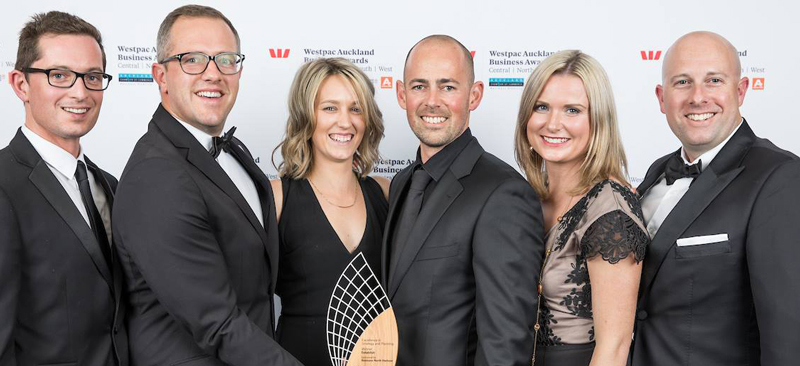Garage to Global: 10 steps to take your idea to the world
In this ten-part series exclusive, successful serial entrepreneur Mark Loveys provides a succinct…
In this ten-part series exclusive to NZBusiness, successful serial entrepreneur Mark Loveys provides a succinct ‘how to’ guide for would-be entrepreneurs.
Part 1: The Big Idea
Starting a new business is a big undertaking, requiring all sorts of things like inspiration (a “Big Idea”), market knowledge, research, analysis, advice, planning, execution, money, supporters, backers, customers, suppliers, hard work, determination, self-confidence and lots of ‘grit’.
Another way of putting it is: “One percent inspiration and 99 percent perspiration.”
You will have to work long hours for little or no income while you get things started.
It might look like a big backward step, particularly if you’re moving from a secure well-paid job into the abyss of a new venture.
People may ask why you would put yourself through all of this to start a business.
I would answer that creating a successful business is one of the most satisfying endeavours in life. Akin to raising a child, in so many ways. Very worthwhile, but requiring sacrifices.
It all starts with the “Big Idea” – an inspiration for a business that you decide to act on.
If you’re like me, you’ll have lots of ideas for new businesses, the majority of which you will never act on.
When you do decide to act on the one “Big Idea”, you’ll most likely get told “you’re crazy”, “it’s too risky” and “what if it goes wrong?”
You’ll have to believe in what you’re doing, even if others don’t.
The Big Idea need not be revolutionary, need not change the world, need not be radical – but it does need to be something that you are capable of executing well; that has some kind of unique selling point; that is useful to other people; that people will pay good money for; and that can sustain and grow a successful business.
Some Big Ideas, particularly in the technology sector, are time-sensitive.
New technology gives new capabilities that enable new business opportunities. Sometimes the business that adopts a new technology at the right time (not too soon, not too late) can dominate a market and disrupt other players in the market. Think of Uber, Google, Amazon and Xero.
It’s been said “timing is everything” in technology businesses.
“Business is all about managing risk, embracing risk, working to defy and minimise risk, and yet respecting risk.”
The Big Idea Filter
There are always thousands of reasons not to do something. Starting a business involves investment and all investment involves risk.
Most people won’t do it, but you are different. You will never find a business idea that doesn’t involve a degree of risk.
Business is all about managing risk, embracing risk, working to defy and minimise risk, and yet respecting risk.
Here are some questions to test your Big Idea with. The more positive answers you can give to these questions about your Big Idea, the more positive your Big Idea might be.
• Can I explain my Big Idea in one sentence?
• What customer “need” will the Big Idea be satisfying?
• What value will be offered to customers in exchange for their money?
• Who will be my customers? What demographic?
• How large or small is my customer demographic?
• How much will my customers be prepared to pay for my offering?
• How is my offering unique or different to others?
• How will I compete with other businesses who have similar offerings?
• How will I attract customers? How will they know about my business?
• How well suited and experienced am I to run this sort of business?
• What skills and experience do I have that will be helpful to this type of business?
• How much will this type of business cost to start-up before it is self-funding or profitable?
• Do I have access to the amount of money required to start this type of business?
• What is the expansion potential of this Big Idea? Can it go nationwide or international?
• What is my exit strategy? What will happen to this business when I’m finished with it?
• Who would want to buy this type of business?
In New Zealand, we are fortunate to have organisations that can be very helpful to people starting businesses.
If your Big Idea is going to require investor backing and you have good answers to the above questions; you might find an angel investor group can be very helpful with advice and assistance. I’ve worked with, and recommend, three New Zealand angel groups, namely: Ice Angels, Flying Kiwi Angels and Enterprise Angels.
These groups consist of successful business people who have lots of experience in all types of businesses. You can save yourself a lot of pain by listening to the experience of others who have done it before!
Once you’ve settled on your Big Idea, you’re ready for the next steps, which will be the subject of my next article.
Mark Loveys has been dubbed ‘one of New Zealand’s most successful serial software entrepreneurs’. He was the original developer of Exonet, the ERP software suite now called MYOB Exo, and former chairman and co-founder of Datasquirt.
As co-founder and former CEO of Enprise Group, Mark helped establish EMS-Cortex ‘cloud control panel’ software as a leading international solution and was instrumental in the sale of EMS-Cortex to Citrix in 2011. These trade sales have a combined value of more than $50 million.



